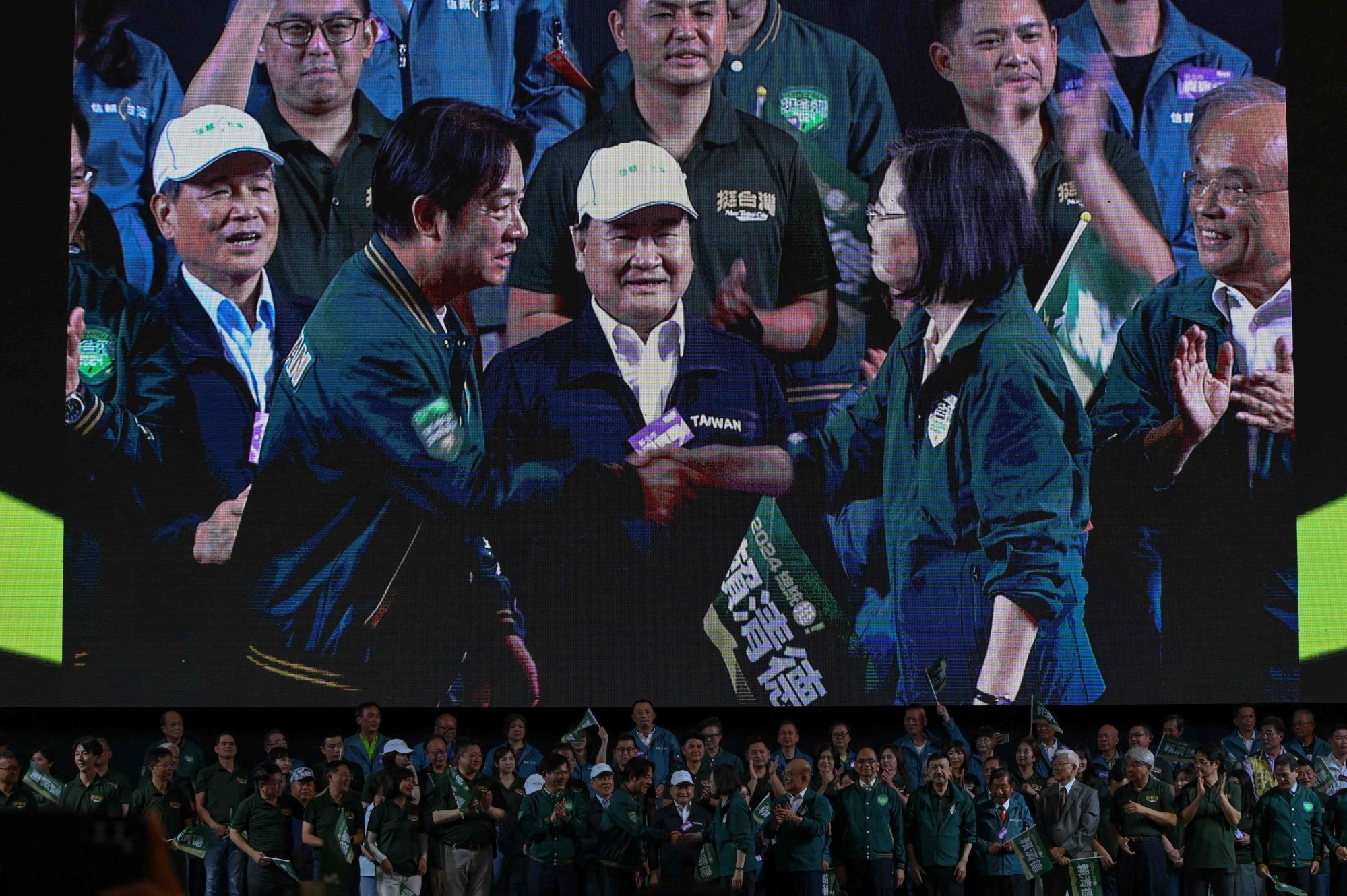Calling channels of military communication “absolutely critical”, the official stressed the importance of keeping these lines open “both at senior levels of our military but also operator to operator”.
Downplaying the possibility of tangible outcomes, the official said the current state of bilateral ties “is not the relationship of five or 10 years ago”.
“We’re not talking about a long list of outcomes or deliverables,” she said. “The goals here really are about managing and preventing the downside risk of conflict and ensuring channels of communication are open.”
Yellen, Chinese counterpart begin talks to lay groundwork for Biden-Xi meeting
Yellen, Chinese counterpart begin talks to lay groundwork for Biden-Xi meeting
On the subject of low outcome expectations, a second Biden administration official on the call with reporters offered a blunt assessment of Washington’s attempts to influence Beijing.
“Efforts to shape or reform China over several decades have failed, but we expect China to be around and to be a major player on the world stage for the rest of our lifetimes.”
Biden at Apec with Xi should ‘shine light’ on political prisoners: US panel
Biden at Apec with Xi should ‘shine light’ on political prisoners: US panel
Three US citizens and lawful permanent residents have been detained in China, including American pastor David Lin, who was reportedly taken into custody in 2006 while waiting for approval to build a church there.
The Biden administration’s emphasis on using a summit to get military-to-military dialogue back on track underscores the degree to which the bilateral relationship has deteriorated, said Lyle Morris of the Asia Society Policy Institute’s Center for China Analysis.
That may already be a done deal, said Oriana Skylar Mastro of Stanford University’s Freeman Spogli Institute for International Studies, who cautioned that such a development should not be considered a concession on Beijing’s part.
The chances of restarting military-to-military dialogues “are very high”, she said, adding: “I wouldn’t say it’s Biden success.”
Mastro said talks authorised by the military maritime consultative agreement (MMCA), which had been a fixture since the late 1990s, and discussion about “military incidents at sea or in the air” would most likely resume first.
PLA’s Shandong carrier ‘sails through Taiwan Strait’ after western Pacific drills
PLA’s Shandong carrier ‘sails through Taiwan Strait’ after western Pacific drills
Like most other Western countries, the US does not recognise Taiwan as an independent country, although Washington is committed by its Taiwan Relations Act to support the self-ruled island’s defence capability.
However, as the second official said on the call with reporters, the Biden administration saw Beijing as the cause of tension in the Taiwan Strait.
“We’re … quite concerned by a ramping up of military activities around Taiwan in ways that are unprecedented, that are dangerous, that are provocative,” he said.

Ian Johnson of the Council on Foreign Relations (CFR) said the two leaders were likely to agree to positions on the self-ruled island that would not be difficult to honour.
Xi would “get some pledge from the United States not to support [Taiwan’s ruling Democratic Progressive Party], which I don’t think the United States … would want to do anyway”, Johnson said in a CFR panel discussion on Thursday.
Compared to the US side, Beijing has said very little so far about its objectives for Xi’s meeting with Biden other than an expectation of “in-depth communication on issues of strategic, overarching and fundamental importance in shaping China-US relations and major issues concerning world peace and development”.
US ‘happy to help’ countries fearing China’s economic coercion
US ‘happy to help’ countries fearing China’s economic coercion
“There’s more pressure on Xi to have some something tangible out of this,” Morris said. “There isn’t as much thirst for major agreements with China because of how bad China’s image is in the US whereas, in China, because their economic situation, they probably would benefit from some kind of economic trade agreement or some sale of goods or something.”
In the call to reporters, the first Biden administration official said to expect “something along the lines of what you saw in Bali” in terms of the Xi-Biden summit arrangements.
“We divided [the summit] up into a couple of different sessions in Bali, we’d expect about the same this time around,” she said.
“This is more than just a bilateral on the margins of multilateral meetings. We’re setting some time aside for the two leaders to sit down and have in-depth conversations on the full range of issues that the US and China face across the globe and bilaterally.”
Additional reporting by Amber Wang in Washington

